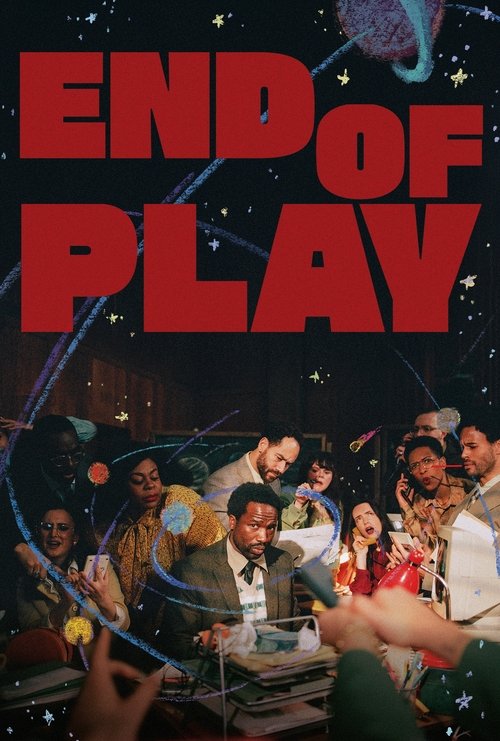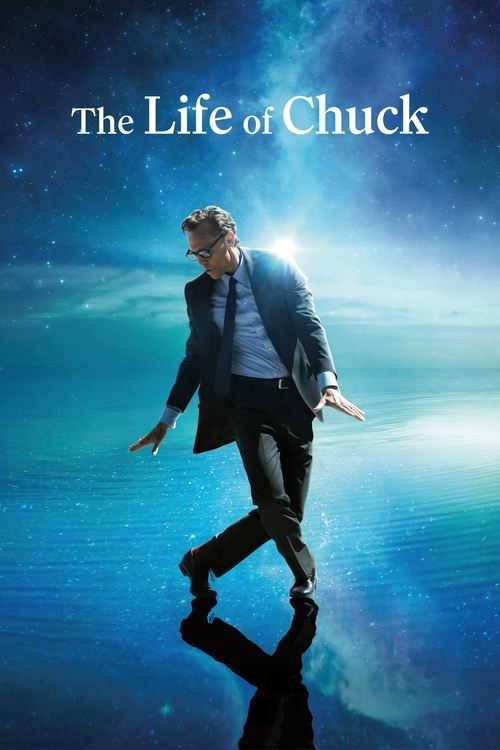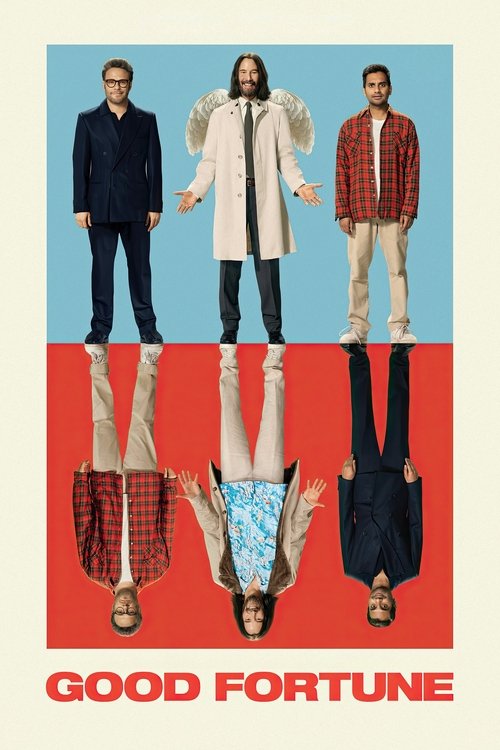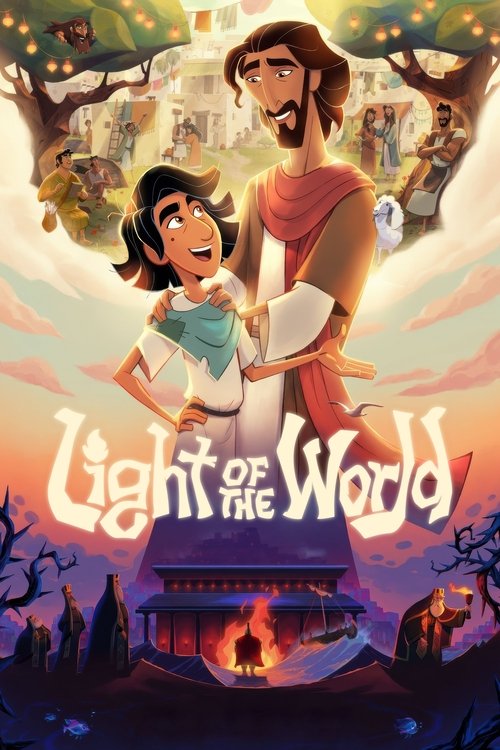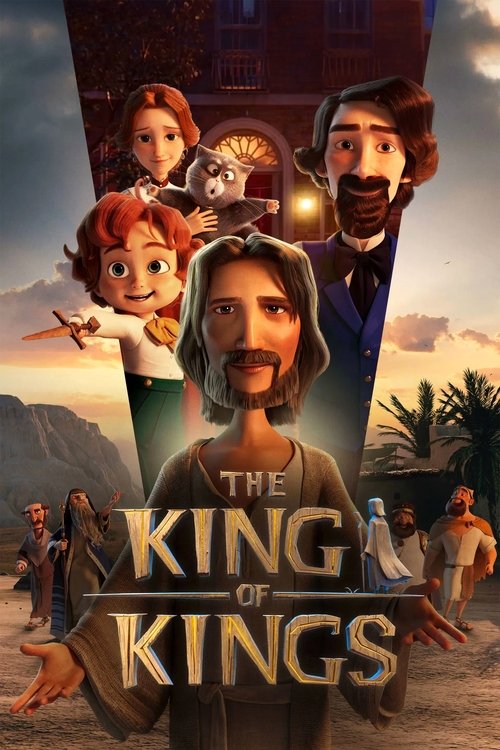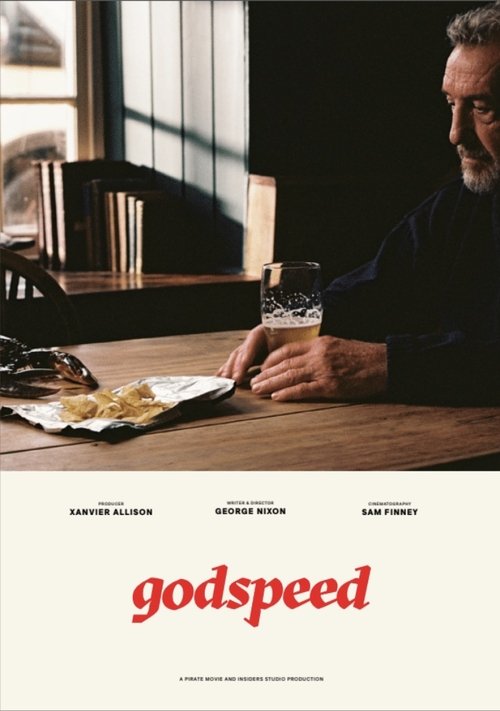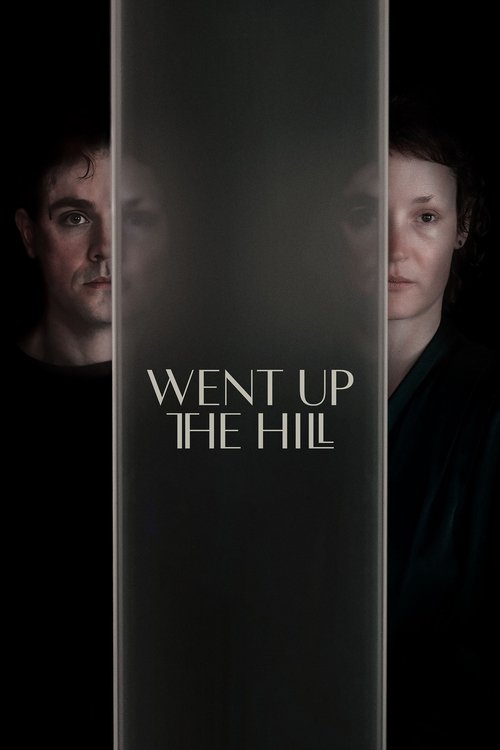
Ask Your Own Question
What is the plot?
An elderly brass player named Max Tooney stands inside a cramped pawnshop in the 1940s, holding the battered trumpet that once made music in his hands every night. He presses the horn to his lips and plays a single, fragile melody that causes the shopkeeper to stop and look up. The man recognizes the tune immediately: it is the same strain that once came from a battered record recovered from an old upright piano salvaged from a sunken liner. Max tells the shopkeeper, in a voice threaded with fatigue and memory, the story behind that impossible record. His words unfold into a long account that reaches back to the very beginning of the century.
In the winter of 1900 a transatlantic liner, the S.S. Virginian, becomes the place where a newborn is left on a pile of baggage. The baby arrives wrapped in a newspaper advertisement and clutching a ragged sign with letters that read the year "1900." Danny Boodman, a boiler room worker on the ship, finds the infant in a life preserver and takes him in. Danny Boodman names the child Danny Boodman T.D. Lemon 1900, incorporating the finder's name and the advertisement with the year into the little boy's long official name. He raises the child below decks among the ship's workers, teaching him to hide whenever officials come aboard who might take the baby away to an orphanage. In the cramped, hot belly of the liner, the foundling discovers an old piano that had been discarded among the machinery and begins to teach himself to play. The ship's engine noise becomes a backdrop to his first experiments with melody; the baby grows into a boy who, by some uncanny instinct, knows where to put his hands.
When he is old enough to be part of the ship's life, the youth proves to have an extraordinary ear and touch for the piano. Crewmen and passengers alike hear him improvise, and he quickly becomes the pianist for the ship's band. The young man carries the name that marks his origin but everyone shortens it to "1900." He forms a deep friendship with another musician, a hot-tempered trumpeter named Max Tooney. Max, who will later tell the story in the pawnshop, becomes 1900's closest companion, the one who pushes him forward, who cajoles and provokes and shares cigarettes and late-night drinks. The two men spend years playing in the ship's saloons, bringing in dancers and gamblers, performing for officers and steerage passengers across decades of voyages.
1900 refuses, again and again, invitations to step off the gangway. Officers and passengers talk to him about cities with endless streets, about skylines and music halls, about opportunities to perform. He hears about the world but refuses to live in it. When men tell him to choose a life ashore, he answers that "the world is too big." The ship, to him, is a contained universe where everything he needs exists: the keys under his fingers, the rhythm of boilers, the faces of friends and the occasional traveling passenger who will flock to hear him play. He believes he cannot be sure of himself in the wide world; the liner offers certainty and a place to belong.
On board, 1900's playing matures into a distinctive style that blends ragtime, jazz, and strange improvisations that no one else plays. He attracts attention from notable guests who pass through the ship. One night a confident, brash musician from New Orleans--Jerry Roll Morton, a self-professed inventor of the music and a force in ragtime--disembarks to challenge the young pianist. Morton, arriving with swagger, confronts 1900 in a saloon crowded with revelers who want to witness a duel between two masters. Jerry Roll Morton attacks with heavy-handed technical tricks and historical patter, citing his own contributions to the genre. 1900 answers not with words but with music. He invites Morton to play a motif and then takes it apart, layering strange harmonies and improvisational flights that defy the conventions Morton insists on. The duel grows intense: Morton tries to overwhelm him with technical showmanship, jabs and flourishes, while 1900 slices into the tune with surprising, lyrical turns and a rhythmic freedom that renders legend moot. The crowd moves from jeers at Morton's arrogance to hushed stunned silence as 1900 builds crescendos and suddenly returns to tender, unexpected quiet. In the end Morton's confidence unravels; he leaves defeated, muttering that the record of his own greatness failed to find a rival. 1900 remains alone at the piano, finishing a melody that no one has heard before.
Across voyages, a series of intimate encounters shape 1900's life on the liner. He meets a young woman, known simply as "the Girl," who travels on a leg of the route and captures his brief, intense attention. He composes a delicate piece intended expressly for her, a tune he imagines presenting like a gift. When a record producer comes aboard--an entrepreneur with a portable recording device and a keen eye for commercial talent--he becomes enthralled by 1900's ability. He makes a furtive, triumphant effort to capture a demo of one of 1900's original compositions, the piece 1900 wrote for the Girl. The producer intends to press it into a record and sell the music to the wider world, imagining success for both the artist and himself. He presents his offer as a chance to spread the music beyond the ship's rails.
1900 reacts to the idea with deep unease. He does not want to be known in the way the producer imagines, and he resists any attempt to convert his art into commercial product. He tries to hand the demo to the Girl instead, wanting her to have his composition as a private thing between them rather than a public commodity. The attempt at intimacy fails: the tracks of the ship and the logistics of the passengers disperse the moment. When the recording cannot be delivered, 1900 chooses to destroy it. He smashes the fragile record into pieces, scattering the fragments across the deck and in the piano, refusing to let his song be exported as a commodity.
The ship continues to move through decades, and with time the band changes. Musicians come and go; seasons pass. Max, who once plays trumpet nightly beside 1900, eventually leaves the ship to join the world ashore. The two friends part with affection and a measure of pain: Max believes that 1900 deserves a wider life, that his gifts should not be contained within the ship's confines. 1900 does not follow him. He stays on board, bound to the liner where the only world he knows takes shape.
At some point the old boiler room worker who found and raised 1900, Danny Boodman, dies in a workplace accident in the engine compartments below the deck. Steam and steel claim him in a sudden, unpreventable catastrophe; he is killed in a boiler-room accident and does not live to see 1900's maturity. His death haunts the ship and the young pianist, underscoring the precariousness of life in the vessel's bowels. The loss hardens 1900's resolve not to leave: the ship is the place where he was found and raised; it contains the echo of the only home he has known.
Years pass. The S.S. Virginian serves multiple purposes beyond luxury liner transport. During wartime it becomes a hospital ship; at other times it serves as a cargo vessel. Its grandeur fades--paint peels, corridors sag, fixtures tarnish--and by the 1940s it has become a derelict hulking thing, far from the opulent ship of earlier years. Shipping technology and times change, and demand for the old liner dwindles. Finally, the owners decide to scrap the Virginian. A demolition crew and salvage company purchase the hull with the intent of towing it away, setting charges, and sinking it where it will become a reef and a memory.
Max, now older and down on his luck, faces poverty in the 1940s. He enters a pawnshop with the trumpet he once played by 1900's side, attempting to sell the thing for money. He fails to find a buyer; he cannot give the instrument away. In a moment of impulse or recollection, he plays a plaintive melody in the shop; the owner recognizes it as the same tune he had heard on an old record recovered from a piano that was pulled from a shipwreck. The owner tells Max about the salvaged piano and the record inside it, and Max realizes that the instrument--long believed lost when the liner was decommissioned--may have contained evidence that 1900 had once sat and played on board. Max makes a decision: he will return to the Virginian one last time to look for his friend.
He boards the ship as a guest, helped by the shopkeeper who, moved by the tale and the tune, allows him a chance to see the old liner before it goes to the breakers. Max goes into the ship's ruined compartments. He must cross corridors strewn with frayed ropes and rusting fixtures; he passes closed doors and long-abandoned cabins, where flaking wallpaper shows the ghosts of past occupants. In the bowels of the vessel, in a part of the ship that looks frozen in a different era, Max finds 1900. The pianist sits on an imaginary stool before an imaginary keyboard. The actual pianos are gone; one was dismembered years before and the other shipped away. 1900, wearing a ragged suit and mist of dust on his face, pretends to play, moving his hands as if the keyboard is still under his fingers. He sings and taps his feet to a rhythm that no one else hears.
Their reunion is quiet and heavy with unspoken pleas. Max--who has carried a lifetime of regret about leaving and of failing to drag 1900 into the world--begins a desperate effort to persuade his old friend to step down the gangway at last. He lays out the things he believes 1900 would like: cities to explore, halls to fill, records to make, the chance to know his own fame beyond the closed microcosm of the ship. Max reminds 1900 of the Girl and of the music he crushed in the name of privacy; he tells him how many people would travel to hear him now. He shows him the recording he had kept safe in his pocket, the pieces of that destroyed disc, and the memory of the music he once heard 1900 play.
1900 listens. He answers in the slow, measured voice he has learned aboard the liner. He tells Max that he cannot cross the ship's rail; the world is too large, and the world's unknowns frighten him. He confesses that he once tried to imagine the street and the sky, but each image collapses into a sense of vertigo. The ship offers him a precise and knowable life--stairs that always go to the same places, ceilings that hold the same light fixtures, mates whose faces he recognizes. Leaving would be a leap into an uncertain expanse that would erode him. He says he is calm and whole while aboard the Virginian; he feels like a part of something that has a heartbeat. He tells Max he would rather go down with the ship than risk losing himself in the endlessness of the world.
Max pleads and bargains. He tells 1900 that he will stay with him, that together they can go ashore to a modest apartment and fill it with an upright, and that Max will guard and protect him in the foreign streets. He promises the Girl could be found; he promises a stage and applause. Max's voice collapses under the weight of urgency and age. He becomes furious, then surrendered. 1900, however, does not move. He thanks Max for his loyalty and for the life they shared; he expresses gratitude at Max's devotion but confirms his decision. The two men, once inseparable, part with a farewell that is both tender and irrevocable.
Shortly after their conversation the demolition crew begins work to prepare the Virginian to be scuttled. Men come aboard with cutting torches and crates of explosives meant to break and sink the hull in a controlled fashion. In the predawn hours, charges are placed and detonators engaged; workers light fuses and prepare to tow the hull to sea. Max, having failed to persuade 1900, steps back into the world he knows. He does not stay aboard to fight or to physically remove his friend. He leaves the liner, descending the gangway and stepping onto the dock, turning his back on the rust and the brass and the single piano key still ringing in his bones.
The ship is towed to a remote spot off the coast. As the salvage crew begins the sequence to sink the Virginian, they ignite charges that breach bulkheads. The liner shudders and tilts as seawater floods compartments. The old boilers, weakened and full of corrosion, rupture under the shock; an explosion ignites vapor and steel. Flames leap through corridors as the hull collapses. Onboard, in the section where 1900 sits, the fire and the water reach him before he can leave. He dies as the ship does, encompassed by flame and the music in his head, choosing the end within the only home he ever knew. The demolition crew's actions--placing and detonating charges that bring the liner down--cause the final conflagration; 1900 does not perish by an individual's deliberate hand so much as by the official, contractual decision to sink the obsolete vessel. The ship explodes and goes to the seabed, and with it 1900 is swallowed.
After the wreck, the salvage operation yields an upright piano pulled from the wreckage; among its parts workers find fragments of a record. The shopkeeper who had recognized Max's tune had seen that recovered record and had once listened to the strange, beautiful music recorded on it. In the pawnshop, Max answers the owner's earlier question--how the demo had found its way into the piano--by revealing that he had salvaged the pieces himself years before. After 1900 smashed the record in his refusal to be marketed, Max had scooped up the fragments and hidden them in the cavity of a piano he was able to save, inserting the shard into the instrument as a private apostrophe to the friendship that had once been a living music. When divers later raised a battered piano from the seafloor, the salvaged fragments emerged intact, a tangible trace of the pianist they had believed lost. The owner gives Max back the trumpet--not as a transaction but as a recognition of a story that matters more than the brass instrument.
Max leaves the shop with the old horn they return to him. He walks into the dim streets carrying his instrument and the residue of memory. He will carry the tale of 1900--the foundling who refused the world and who died with the ship--through the rest of his days, telling it to anyone who will listen. The remnants of the record sit as proof that 1900's music did exist beyond the walls of the liner, and yet the man who made those sounds never again sits at a real keyboard in sunlight. The final image is of the ship's broken silhouette beneath the waves and of Max walking away through the city streets, trumpet at his side, while the ocean keeps the last notes of 1900's life sealed in its cold depths.
What is the ending?
I couldn't find specific details about the ending of the 2025 short film "End of Play" in the provided search results. However, I can provide a general approach to how such a narrative might be structured based on the available information.
Short Narrative: Since specific details about the ending of "End of Play" are not available, a precise short narrative cannot be provided. The film involves a junior creative at a cosmic agency racing against time to create his dream world before his head explodes, blending elements of black comedy, drama, fantasy, and sci-fi.
Expanded Answer: Given the lack of specific information about the ending of "End of Play," I will outline a hypothetical approach to narrating the conclusion of such a film, focusing on key elements that might be present in a story of this genre.
-
Introduction to the Climax: The protagonist, a junior creative, is under immense pressure to create his dream world within a tight deadline. As time runs out, his anxiety and desperation escalate, leading to a series of frantic and creative decisions.
-
The Turning Point: In a moment of clarity or desperation, the protagonist might discover a crucial element or insight that could save him from his impending doom. This could involve a breakthrough in his creative work or an unexpected ally who helps him navigate his challenges.
-
The Final Confrontation: As the deadline approaches, the protagonist faces his greatest challenge yet. This could involve overcoming internal fears, external obstacles, or both. The scene would be filled with tension and urgency as the protagonist's fate hangs in the balance.
-
Resolution: The ending would likely involve the protagonist either succeeding in creating his dream world, thereby saving himself, or failing and facing the consequences. If successful, he might find a new sense of purpose or fulfillment. If unsuccessful, the film could end on a tragic or thought-provoking note, highlighting themes of creativity, pressure, and the human condition.
-
Fate of Main Characters:
- Protagonist: Depending on the outcome, the protagonist could emerge transformed, having learned valuable lessons about creativity and resilience, or he could succumb to his challenges, serving as a cautionary tale about the pressures of creative work.
- Supporting Characters: Any supporting characters, such as colleagues or mentors, might play roles in the protagonist's journey, offering guidance or obstacles that influence his final outcome.
Without specific details from the film, this outline provides a general framework for how the ending of "End of Play" might be structured.
Is there a post-credit scene?
There is no information available regarding a post-credits scene for the movie "End of Play" produced in 2025. The search results do not mention this specific film, and therefore, no details about a post-credits scene can be provided. If you are looking for information on other movies, the search results include details about post-credits scenes for films like "Heart Eyes," "Thunderbolts," and "Superman: Man of Tomorrow," but none of these relate to "End of Play."
Is this family friendly?
There is limited information available about the movie "End of Play" produced in 2025. It is a short film with a release date of September 10, 2025, in the United Kingdom, but specific details about its content or whether it is family-friendly are not provided in the search results.
Without specific details about the plot or content, it's difficult to list potentially objectionable or upsetting scenes. However, if you're concerned about suitability for children or sensitive viewers, it might be wise to wait for reviews or more detailed descriptions once the film is released.

